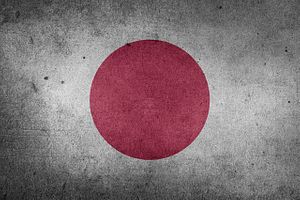Last week the government announced a “full scale examination” to decide the scope of offences eligible for pardon to honor Emperor Naruhito’s ascension to the throne at the end of the month.
Following former Emperor Akhito’s abdication in April, between 500,000 to 600,000 people convicted of minor crimes within the last three years will be considered for amnesty.
If the government pardon goes ahead, it will be the first time in 26 years that such a mass pardoning has occurred. In Japan amnesty dates as far back as the Nara period (AD 710) and was incorporated into the emperor’s sovereignty under the constitution in the late 1800s. Originally, amnesty showed the emperor’s authority in being able to offer mercy. Since World War II amnesties have been carried out 11 times. In 1989 an amnesty of some 10 million people coincided with Emperor Hirohito’s funeral. But gradually the number and scope of amnesties have been scaled down in fear of public backlash.
Government amnesty involves a uniform decision on the types of minor crimes and punishment to be covered under a pardon. Amnesty commonly refers to the reinstatement of lost legal rights. In Japan obtaining national qualifications for nurses and medical practitioners are suspended for five years following a guilty conviction. In consideration of the victim and their families, people sentenced to death cannot receive a reduced life sentence nor can people convicted of serious crimes and sentenced to prison time. Individual amnesty is also an option in which an individual’s circumstances will be examined on a case by case basis. A range will be established defining those falling inside and outside of the government pardon.
Once the full scope for amnesty is finalized, article 7 of the constitution stipulates the final seal of approval must come from the emperor. Under the post war era the emperor serves as a symbol of tradition and unity and has virtually no political authority, but in reality the emperor’s name is occasionally dragged into decisions made by the cabinet in political and administrative affairs.
Criticism that government amnesty may be used to meddle in politics has increased over the years. While 1,300 people were granted amnesty in 1993 to commemorate then-Crown Prince Naruhito’s wedding, almost every benefactor was a politician or a political supporter in violation of the public office election law, political funds law or diplomatic law following political or bureaucratic misconduct.
The Ministry of Justice states that amnesty plays an important role in maintaining a safe society in deterring recurrence and improve the rehabilitation of offenders. The selection criteria considers those who have shown remorse for their mistakes, have changed their behavior and are found to be of no risk of recidivism. However, the ministry has doubts on whether a government pardon truly encourages rehabilitation.
Over the weekend a public survey revealed 60.2 percent of participants opposed the government’s plan to consider a pardon. Meanwhile, 24.8 percent agreed with the plan. Those in opposition label the procedure as an outdated “relic” with its continuation obsolete and arbitrary. It’s pointed out that government interference in sentences finalized in criminal trials not only contradicts the principle of the separation of powers, but also reduces the effectiveness of criminal trials.
Before the government enacts an amnesty ordinance, Diet deliberations will consider public reaction and whether public consensus can be reached.

































